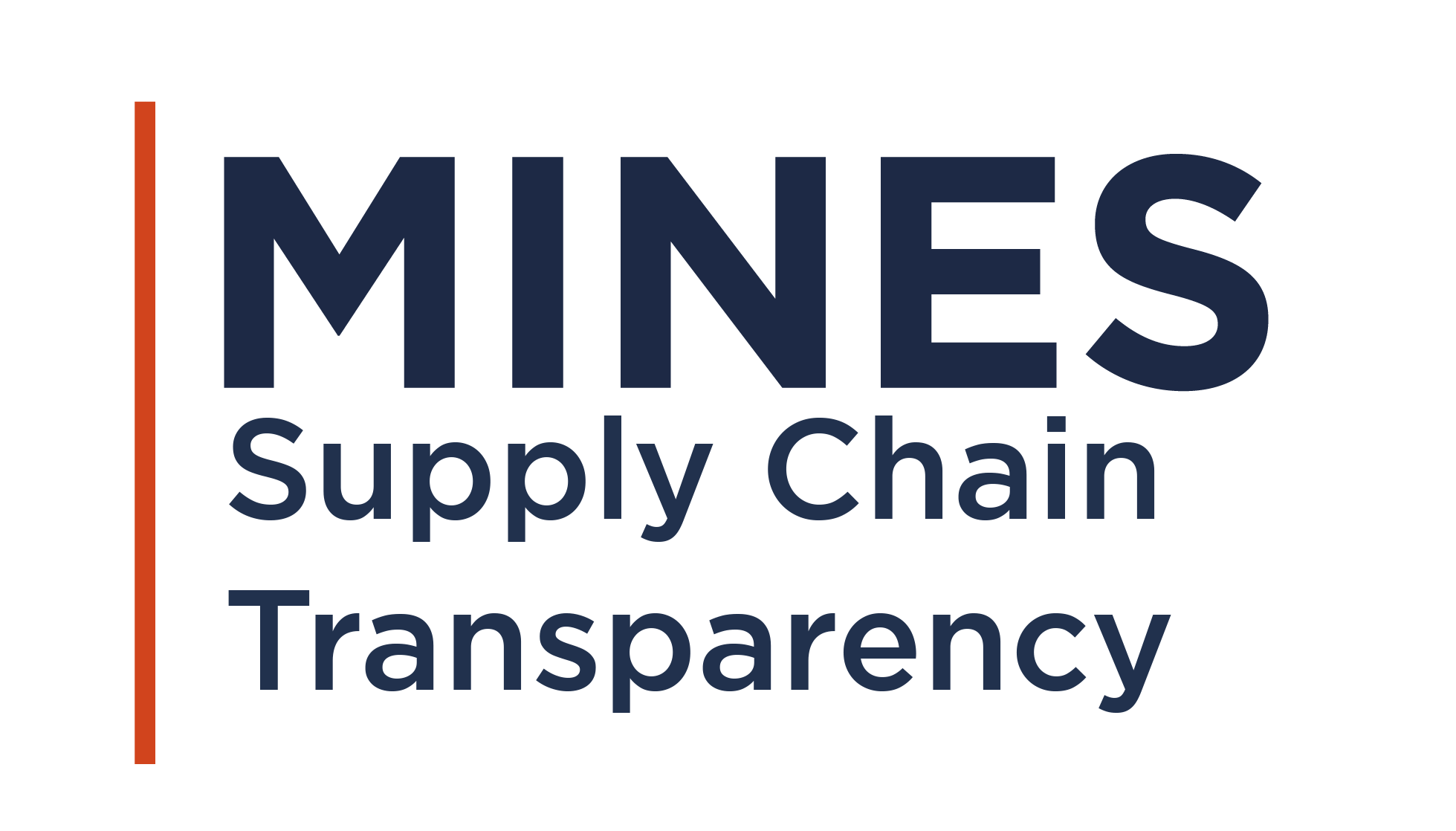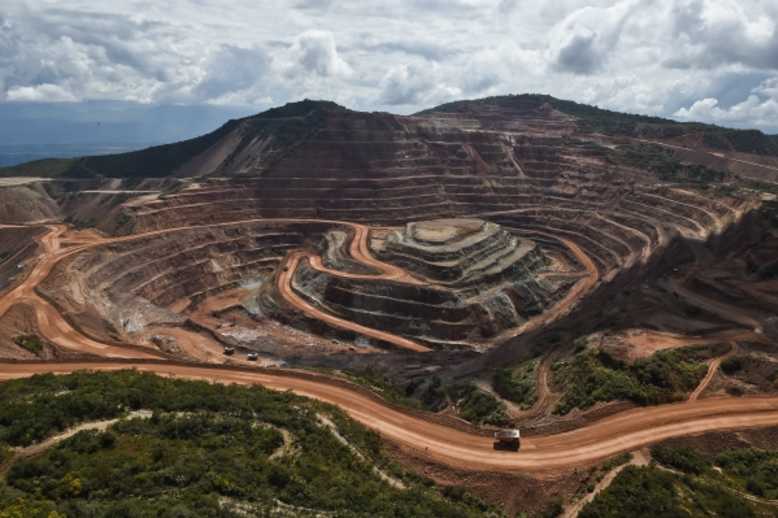Supply Chain Transparency
Understanding how the future energy system will impact the global supply chain and associated effects on markets, communities and the environment

Supply Chain Transparency
Understanding how the future energy system will impact the global supply chain and associated effects on markets, communities and the environment

About Supply Chain Transparency
The global supply chain continues to grow at an incredible rate, but within that growth, a lack of transparency undermines many industries and consumers as they struggle to understand the effects of the supply chain on the markets, communities and the environment.

SUPPLY CHAIN TRANSPARENCY Pillars
Partnerships

- Industry
- Business
- Regulators
- Academia
Education

- Graduate Curriculum
- Student Recruitment
- Professional Development
Learn More
For more information about Supply Chain Transparency at Colorado School of Mines, please contact Mines Global Energy Future Deputy Directory Gregory Clough.
Material Foundations of the Energy Transition
Mines Supply Chain Transparency works with the Critical Materials Institute, the U.S. government, and policy other stakeholders to better understand the challenges and opportunities related to growing critical mineral demand.
Low-carbon scenarios often have—implicitly or explicitly—high and diverse material needs, depending on what assumptions are made about the nature of future energy systems. As certain technologies become more prominent, it becomes easier to identify what materials will be needed in the near term.
It is important to acknowledge the inherent tensions that exist between building a sustainable future and not managing or understanding the sources and materials with which it is built.

Critical Minerals
Illicit Mineral Supply Chains and ASM
Critical materials are those that are considered essential to economic/national security, or are limited in availability due to geological, geopolitical, or trade security issues. Emerging technologies often use relatively large quantities of critical minerals, and sudden increases in demand may inhibit their use. Solar panels, wind turbines, and electric vehicles are notable examples, and it is imperative to understand the material intensity of the low-carbon future to manage critical material supply.

Illicit and conflict minerals have plagued the global supply chain for decades. The challenge has grown dramatically in recent years as demand for certain minerals has increased in correspondence with the technological innovation that drives demand.
 Working at all levels of the mineral supply chain, Colorado School of Mines brings a unique perspective to understanding the challenges related to the illicit mining practices and policies.
Working at all levels of the mineral supply chain, Colorado School of Mines brings a unique perspective to understanding the challenges related to the illicit mining practices and policies.
Supply Chain Transparency works with the Responsible Mining Resilient Communities, multinational mining corporations, and downstream producers, to better understand how illicit mineral supply chains can be managed to benefit local communities and global needs.
ESG and Emissions
 Environmental, social and governance (ESG) principles have therefore become an increasingly important global concern. Mines founded the Supply Chain Transparency and ESG to help navigate materials concerns related to the critical mineral supply chains, the sustainable energy transition, and growing industrialization in developing economies.
Environmental, social and governance (ESG) principles have therefore become an increasingly important global concern. Mines founded the Supply Chain Transparency and ESG to help navigate materials concerns related to the critical mineral supply chains, the sustainable energy transition, and growing industrialization in developing economies.
Accounting and disclosure of carbon emissions is an increasingly market-driven mechanism due to ESG principles, sustainably sourced materials, and the emergence of regional policy mechanisms to control emissions. These interests put a spotlight on the need to track emissions across entire value chains in order to produce an accurate and transparent carbon footprint for the everyday materials used in cars, homes, electronics, and other goods. However, the lack of carbon accounting methodologies that work across different commodities, and the complexities of global supply chains, make this process difficult and convoluted.
Mines Supply Chain Transparency is working on numerous projects, including its role in Coalition on Materials Emissions Transparency (COMET), to help industry partners, suppliers, downstream producers, investors, policymakers, and other stakeholders in understanding emissions from the Global Supply Chain.
Upcoming Events
Supply Chain News
- The United States’ Strategy for Securing Critical Minerals Supplies: Can It Meet the Needs of the IRA? 4/9/2024
- Nuclear Power is Tribal Power 3/19/2024
- Projecting demand for mineral-based critical materials in the energy transition for electricity 3/18/2024
- The U.S. Military and NATO Face Serious Risks of Mineral Shortages 2/12/24
- Ignoring Indigenous rights is making the green transition more expensive 2/2/2024
Supply Chain Transparency Researchers
Faculty Researchers
Gregory Clough
Deputy Director, Payne Institute and Global Energy Future Initiatives
H. Sebnem Duzgun
Director, Mines Supply Chain Initiative and Professor, Fred Banfield Distinguished Endowed Chair, Mining Engineering
Tulay Flamand
Assistant Professor
Economics and Business
Dorit Hammerling
Associate Professor, Applied Mathematics and Statistics
Nicole Smith
Assistant Professor,
Mining Engineering
Learn More
For more information about Integrated Carbon Capture Utilization and Storage (CCUS) at the Colorado School of Mines, please contact Global Initiatives Deputy Director Greg Clough, at gclough@mines.edu.
Mines@150
As Colorado School of Mines approaches our sesquicentennial, we are ideally suited to lead this initiative. Our bold and ambitious MINES@150 strategic plan builds on the exceptional legacy of our PAST, the ways we impact the PRESENT and the POSSIBILITIES of our global energy future.




